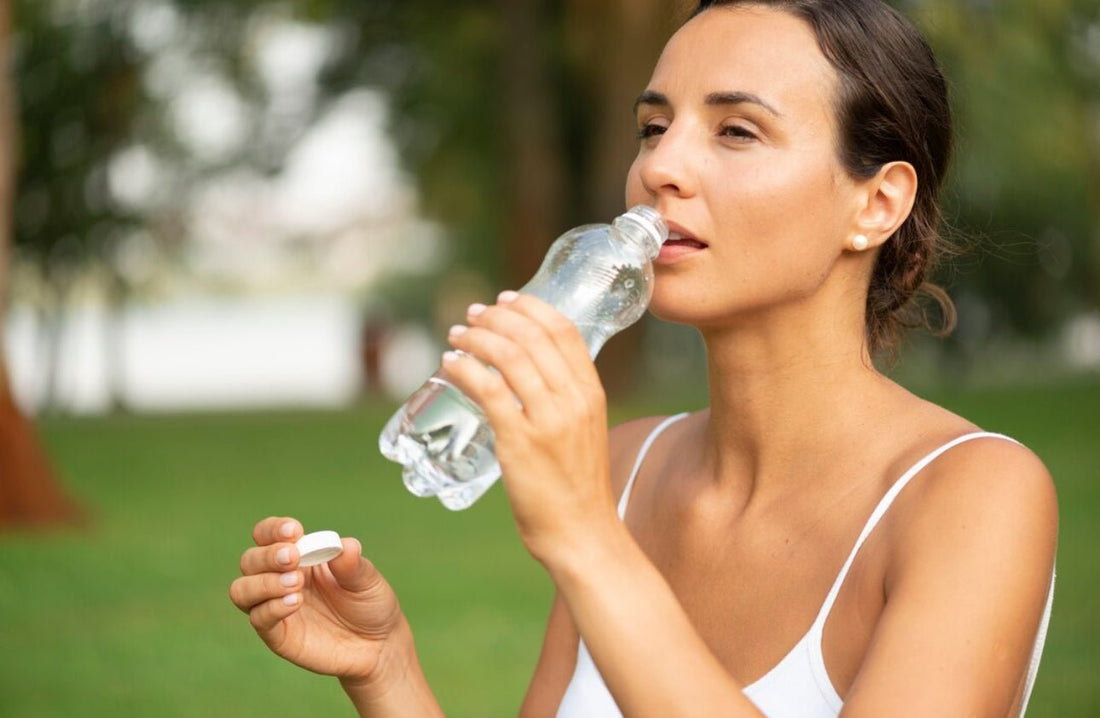In recent years, microplastics have emerged as a significant environmental and health concern. These tiny plastic particles, typically less than 5 millimeters in size, can be found in various forms, including microbeads in personal care products, microfibres from clothing, and fragments of larger plastic items that have degraded over time. Despite their small size, microplastics pose a considerable threat to both ecosystems and human health. In this post, we'll delve into what microplastics are, the dangers they present to health, and explore filter tap solutions capable of removing them.
Why not explore our Collection of taps here, that are guaranteed to filter out all Microplastics
What are Microplastics?
Microplastics are ubiquitous in our environment, found in oceans, rivers, soil, and even in the air we breathe. They come from a variety of sources, including:
-
Macroplastic Breakdown: Large plastic items such as bottles, bags, and packaging gradually degrade into smaller particles due to environmental factors like sunlight, heat, and mechanical action.
-
Synthetic Fibres: Synthetic textiles like polyester and nylon shed microfibres during washing, with each laundry cycle releasing thousands of tiny plastic threads into wastewater.
-
Microbeads: These are small plastic spheres often used in cosmetics, personal care products, and cleaning agents, which are designed to exfoliate or provide texture.
Health Risks Associated with Microplastics:
The health implications of microplastic exposure are still being researched, but several potential risks have been identified:
-
Ingestion: Microplastics can enter the food chain when marine animals mistake them for food. Once ingested, they can accumulate in the digestive systems of organisms, potentially causing physical harm and transferring toxic chemicals.
-
Toxic Chemicals: Microplastics have a high surface area, which can attract and absorb harmful chemicals such as pesticides and industrial pollutants. These chemicals can then leach into the tissues of organisms that ingest the microplastics, leading to bioaccumulation and biomagnification in the food chain.
-
Inhalation: Microplastics have been found in the air we breathe, particularly in urban environments. Inhalation of these particles may lead to respiratory issues and other health concerns.
Filter Taps Capable of Filtering Microplastics:
As awareness of microplastic pollution grows, so does the demand for effective filtration solutions. While conventional water filtration systems can remove larger particles and contaminants, specialised filter taps are needed to address microplastics. Here are some options:
-
Activated Carbon Filter Taps: This is the number one recommendation since as well as removing impurities these taps leave in beneficial minerals. Activated carbon filters can trap microplastics and other impurities by adsorption. These filters work by chemically binding contaminants to the surface of the carbon, providing an effective means of removing microplastics from water. Franke Pro Vital filter tap range incorporates this filtration.
-
Multi-Stage Filtration Systems: Some filter taps incorporate multiple filtration stages, including sediment filters, activated carbon filters, and micron filters, to target a wide range of contaminants, including microplastics. Franke: Maris Water Hub range use this method
-
Reverse Osmosis (RO) Filter Taps: RO systems utilise a semipermeable membrane to remove contaminants, including microplastics, from water by forcing it through the membrane under pressure. This method can effectively filter out particles as small as 0.0001 microns. The only negative with these taps is that they also remove good minerals that have fantastic health benefits.
-
Nano Filtration Systems: Nano filtration employs membranes with smaller pore sizes than traditional filtration methods, effectively removing microplastics while allowing essential minerals to pass through. Greta examples of these taps are: all Zip Water HydroTaps, all Billi Taps, These taps all include high performance filters for Filtered Boiling and or Filtered Cold/Sparkling water dispensers.
Microplastics present a significant threat to both environmental and human health, requiring proactive measures to mitigate their impact. Investing in filter taps equipped with advanced filtration technologies is a crucial step towards reducing microplastic contamination in drinking water. By choosing the right filter tap, we can safeguard our health and contribute to the preservation of our planet's ecosystems for future generations.

